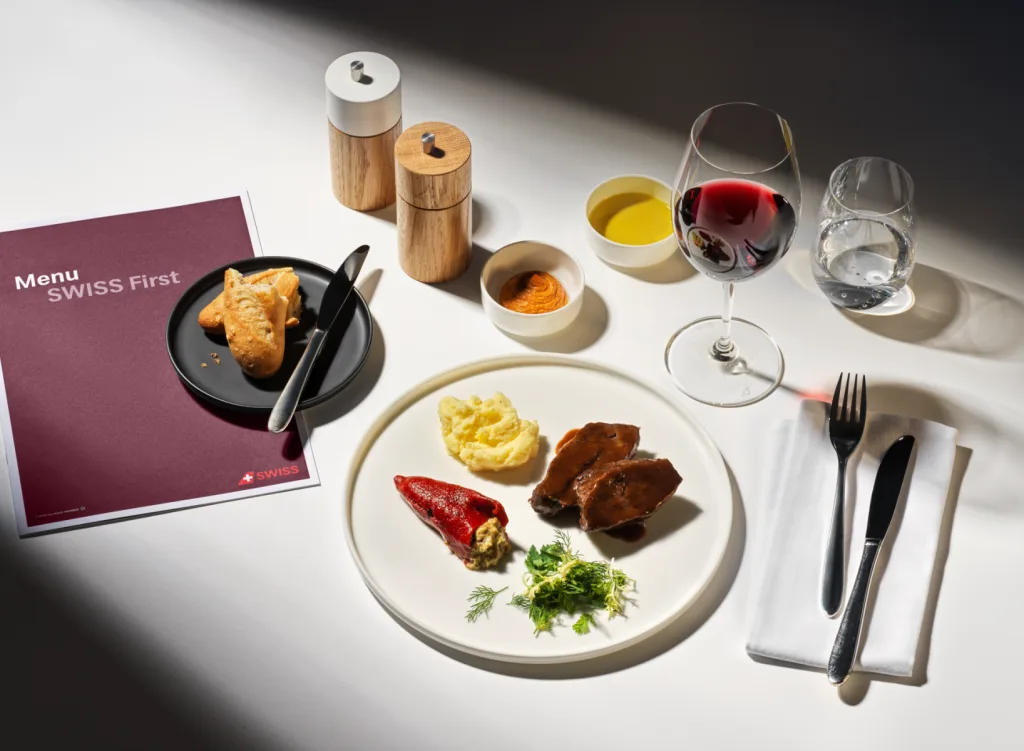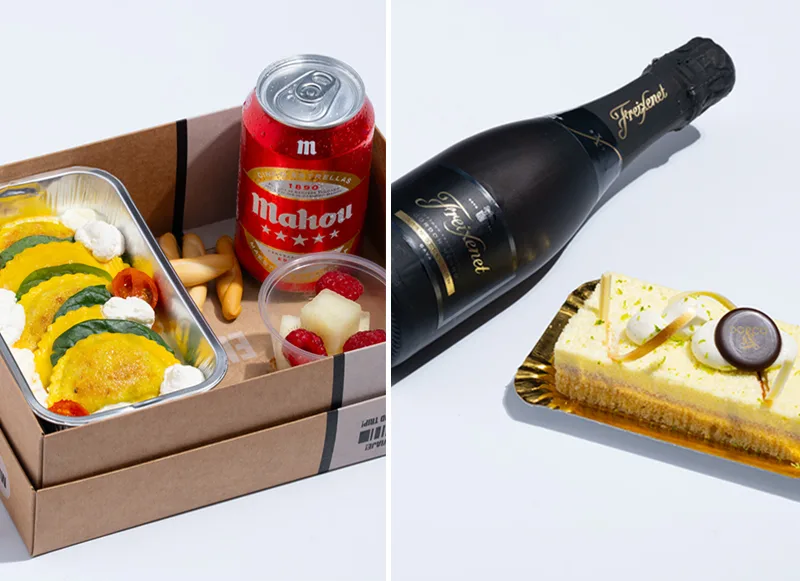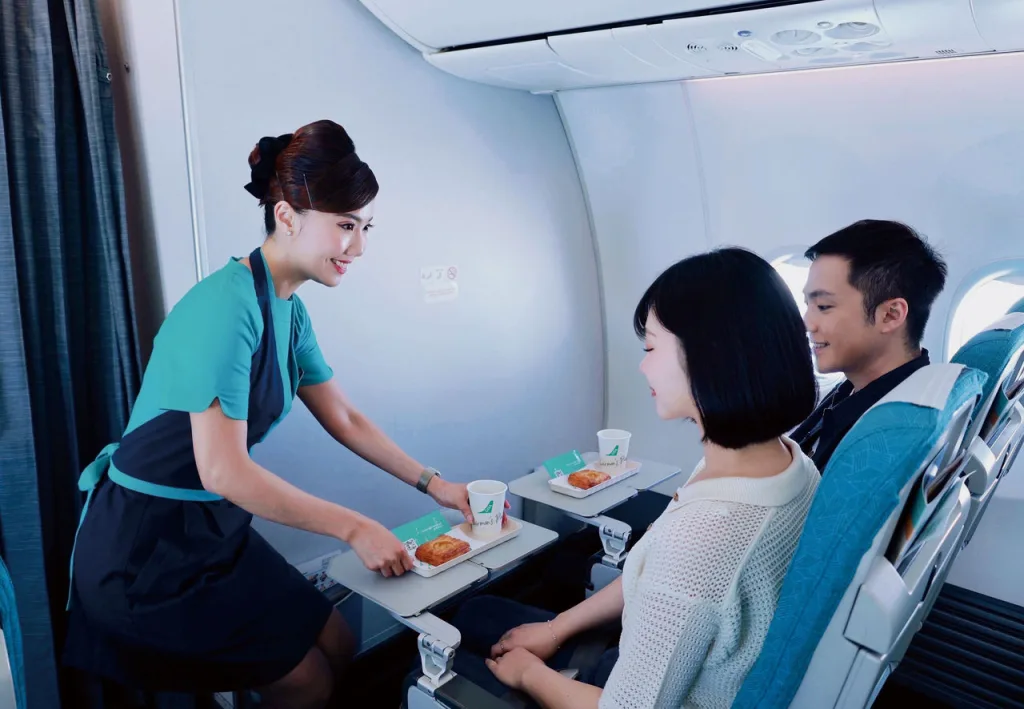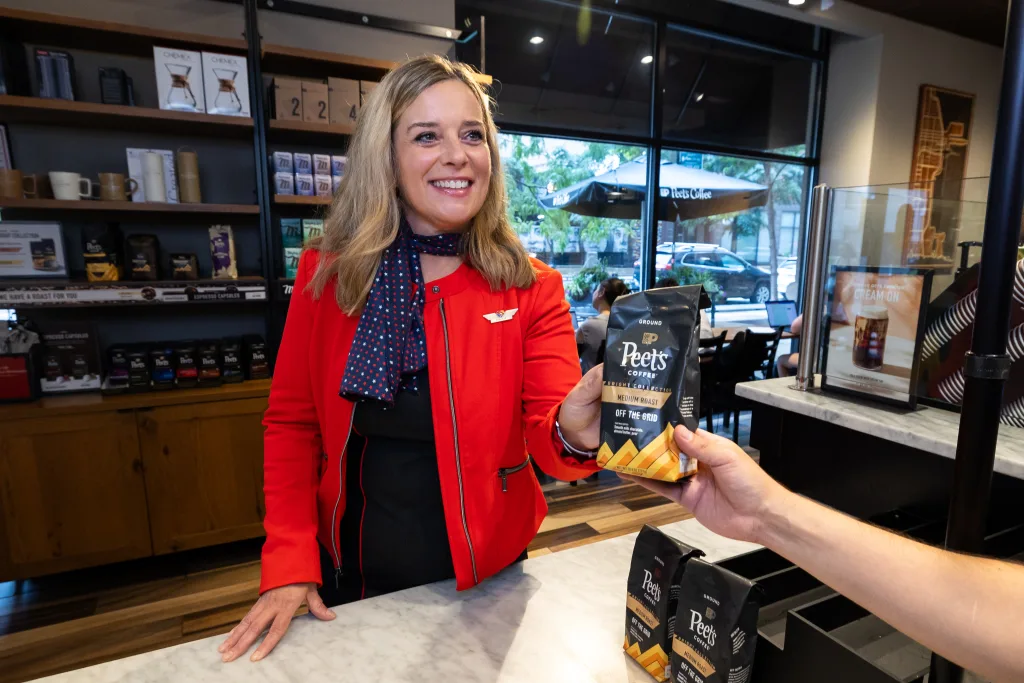LOT Polish Airlines has brought on Bartosz Szymczak from Warsaw’s Michelin-starred Rozbrat 20 to design four business class main courses for long-haul flights from Warsaw.
Passengers need to order at least 24 hours in advance through LOT’s booking system or call centre.
The programme runs until 31 January 2026, with backing from the Polish Tourism Organisation.
What’s on the menu
Szymczak’s four dishes work around galley limitations: sous-vide salmon with shrimp croquette and roasted pepper sauce, beef bourguignon with baby potatoes, veal roulades with candied apple and morel sauce, and spinach lasagna with ricotta.


The sous-vide approach keeps proteins consistent during reheating, while
the rich sauces help with taste issues at altitude.
Why this works
Most airline chef tie-ups just rotate set menus. LOT’s 24-hour ordering window lets them plan ingredient sourcing, acting more like Singapore’s book-the-cook approach, but with fewer choices.
The tourism board involvement shows LOT sees this as Warsaw destination marketing, not just premium cabin perks.
Testing it for five months suggests they’re weighing whether to expand to other Polish restaurants.
Images courtesy of Lot.
Nik founded Inflight Feed in 2012, blending his passion for inflight dining with over a decade of experience in the airline industry. For the past 13 years, he has travelled the world, exploring and reviewing airline meals across countless carriers.
CNN Travel, The New York Times, and BBC World News have featured Nik’s expertise. When he’s not on the ground, you’ll find him at 35,000 feet, camera in hand, capturing the unique flavours of air travel. Follow his inflight meal adventures on Instagram: @InflightFeed.























